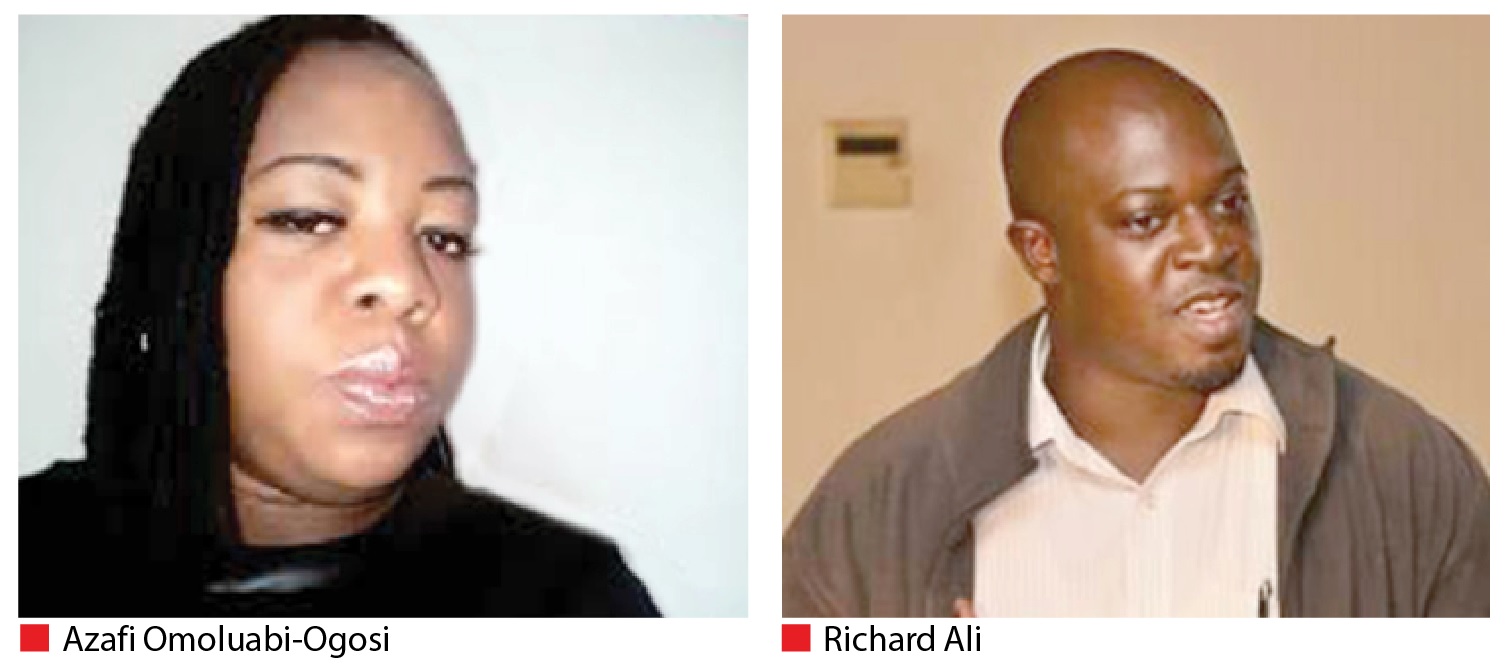Born in Ohio, Toni Morrison was a voice for African Americans. Her novel, ‘Beloved’, delved deep into the slavery experience of Sethe, its protagonist. Others include: ‘The Bluest Eye’, ‘Songs of Solomon’, ‘Paradise’, ‘Jazz’, ‘Tar Baby’, ‘A Mercy’, ‘God Help the Child’ and several more. Nigerian writers had remarkable things to say about her.
Richard Ali (Publisher/Author)
I first met Toni Morrison back in Jos, mid-2000s. I was just rounding off at the university when I came across one of her books, ‘The Bluest Eye’ in Professor Kanchana Ugbabe’s library. The method of the book is such that you are basically told everything about its plot from the first sentence, and yet the uncanny story unravels across the rest of the pages. Very confident style. It struck me that she was a writer to read more of and study.
The next book I read was ‘Song of Solomon’, which I thought was really sad because at that point in time I had started getting to read American writers. I was trying to understand the African American experience, it was an important addition. The last one I read was ‘God Help the Child’ which dealt with very contemporary issues. It seemed to give a nod at #BlackLivesMatter and why it is necessary. At the centre of that book is a child who’s born and the mother is immediately very afraid because the child comes out very dark, far darker than her mother, and she wonders the kind of life the child will have in today’s America. I still have that book, hardback. Treasured.
Then there’s she having won the Nobel prize in 1993 after our own Wole Soyinka. She was a woman who held a light up, in terms of literature from people of African descent. Toni Morrison has more than given her fair share to literature, through her books and her life’s work.
Our loss is compounded in that we imagine that people like her, others like Chinua Achebe, are going to live forever. Unfortunately, nobody lives forever and what we have is the work they leave behind. I am happy to see that over the last two days there has been a lot of focus on her work, bringing in, perhaps, a new audience to her writing and concerns. It has become, more or less, a celebration of her life even though we are sad that she is no more.
I hope that we will continue to treasure other leading lights that remain with us, and we hope that Ms. Morrison, who has gone on ahead of us and become an ancestor, would look on over the rest of us who try to write and try to language as well.
Lola Shoneyin (Publisher/Author)
In my eyes, Toni Morrison always enjoyed deity status. I was introduced to her work in the early 90s by Wale Oyedele and I was so obsessed with ‘Sula’ and ‘Song of Solomon’ that I wrote my thesis on ‘The African Presence in Toni Morrison’s Fiction’. It was through Morrison’s work that I came to understand the consequences of slavery on the African American experience. She had a very precise way of interpreting the present, as if she’d spent her life peering at it through a telescope. Perhaps she had. I had the pleasure of meeting Ms Morrison at the Festival Letteratura in Mantova, Italy a few years ago. It remains one of the most important events in my life.
Azafi Omoluabi-Ogosi (Publisher)
I read ‘Sula’ in 2008 and saw that her writing wasn’t exaggerated. So I started collecting her books and following up on her as a person. When I became a bookseller, her works were some of what I ensured was in stock. I felt it must be recommended. I look up to her as my literary mentor.
Denja Abdullahi (ANA president/Author)
I have read her essays and short stories and I remember discussing them once at the American embassy. I watched the film adaptation of her novel, ‘Beloved’. The story was gripping and I later bought the book. She is a very strong voice in terms of writing that conveys the passion, tragedy, struggles and travails of the black race in America. ‘Sula’, ‘The Bluest Eye’ and several more were all very good works. You read them and you know she is someone who’s carrying the story of a race along with her.

 Join Daily Trust WhatsApp Community For Quick Access To News and Happenings Around You.
Join Daily Trust WhatsApp Community For Quick Access To News and Happenings Around You.


